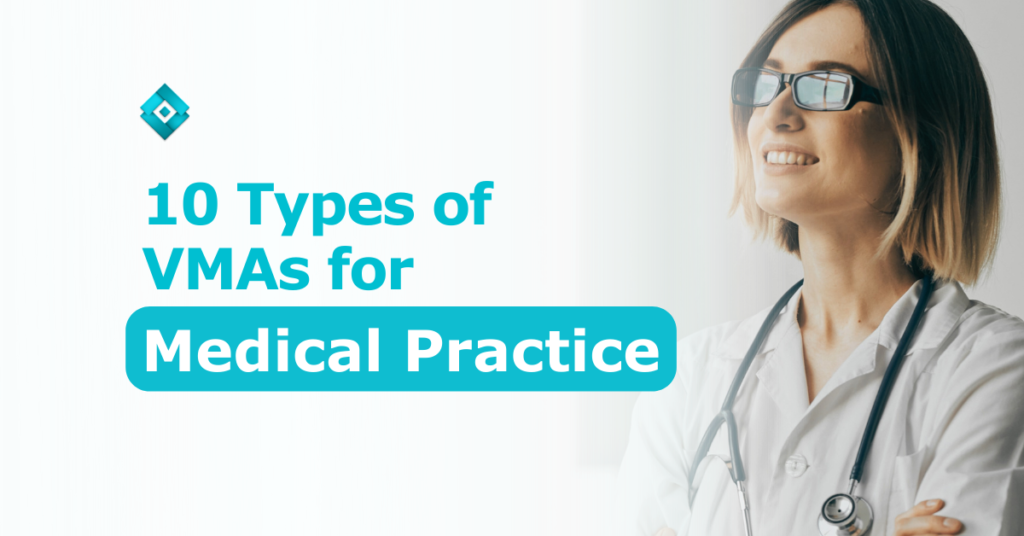The role of Virtual Medical Assistants or VMAs for your medical practice
In today’s healthcare state, there are now Virtual Medical Assistants or VMAs for your medical practice. They exist as doctors and nurses play a vital role in the healthcare system. However, this became tougher due to the recent global pandemic. More patients need treatment, but there aren’t enough healthcare professionals to handle each. These healthcare workers are the ones who provide direct patient care, and they play a critical role in treatment. However, they also have to perform many administrative tasks that take away their time with patients. As a result, doing all these can overwhelm healthcare workers like you, sometimes even leading to burnout.
This is why healthcare workers like you must delegate some of your tasks to Virtual Medical Assistants (VMAs). They can handle various tasks as different types of VMAs are perfectly qualified for your needs. While the use of VMAs is still relatively new, the demand is expected to grow rapidly in the coming years. With clear results, more and more healthcare organizations embrace the advantages of this cost-effective solution.
What are the types of VMAs for your medical practice?
1. General virtual medical assistant
VMAs are individuals who provide medical administrative support remotely, often from their own homes. General virtual medical assistants (GVMA) are VMAs for your medical practice who can perform medical and clerical duties. These include scheduling appointments, managing patient intake, or answering patient inquiries. They typically have a background in medical administration or customer service. As such, they are well-equipped to handle various tasks related to patient care. In addition to their administrative duties, GVMAs may also be responsible for providing educational materials to patients. Lastly, they assist with telehealth appointments and manage electronic medical records.
While some Virtual Medical Assistants specialize in one area, GVMAs are those who can provide support in all of them. With their knowledge of the healthcare industry and administrative skills, VMAs help improve efficiency and productivity in any medical office.
2. Medical or Dental Receptionist
Medical and dental receptionists are another type of VMAs for your medical practice. They are responsible for scheduling appointments, handling patient inquiries, and preparing charts and other documents. In many cases, they are the first point of contact for patients, and their ability to switch tasks and stay organized is essential to keeping the office running smoothly.
In addition to their administrative duties, medical and dental receptionists also play an essential role in patient education. They have the task of attending to patient inquiries through various social media platforms, phone calls, text messages, or email. Medical or Dental Receptionists can answer questions about procedures and services offered by doctors in the clinic. They may also be responsible for filling out forms, preparing patients’ charts, and putting together the clinic’s daily schedule.
As the first point of contact for many patients, they play an essential role in creating a positive impression of the clinic. As such, they must be professional and courteous at all times. They must also be skilled at task switching and be able to handle a high volume of traffic.
With so many essential responsibilities, it is clear that medical and dental receptionists play a crucial role in the day-to-day operations so the healthcare facility can run smoothly.
3. Telehealth support assistant
As a VMA specializing as a telehealth support assistant, they aid healthcare providers in their telehealth practice. They communicate with patients and schedule them for their telemedicine check-ups. Telehealth support assistants are also assigned to collect the patient’s updated information so the physicians have all the data they need before the patient’s appointment. They may also perform the preliminary patient exam. Lastly, they may be designated to handle the aftercare of patients, such as following up on their condition after a course of treatment.
4. Medical Transcriptionists
Virtual Medical Assistants who specialize as medical transcriptionists prepare and organize written reports through listening to voice recordings of doctors and other healthcare professionals. Additionally, they review and edit these transcriptions to ensure that the content is clear and accurate.
As medical transcriptionists, they are highly familiar with various medical terminologies and have a good command of the English language. More importantly, they have a keen attention to detail to ensure that their reports are precise.
5. Patient Care Coordinator
As Patient Care Coordinators, VMAs are well-versed in patient intake, patient exam, and aftercare tasks. They are also experts on how to take patients’ medical histories, document vital signs properly, and conduct physical examinations.
Patient Care Coordinators are also adept at educating patients on their health conditions and available treatment options. In addition, they are familiar with the importance of follow-up care and can provide patients with information on resources such as support groups and counseling services. Consequently, VMAs are essential in ensuring patients receive the best care possible.
6. Telephone Triage Assistant
As VMAs who will man the telephone triage, they are responsible for setting appointments for patients, taking them in for examinations, and handling their aftercare. This includes collecting the required clinical data, insurance details, and other relevant pieces before the patient can proceed with the check-up.
This means they have excellent communication and organizational skills. VMAs for your medical practice, such as telephone triage assistants, are also responsible for resolving patients’ immediate inquiries such as the clinic’s schedule, services it offers, and treatment programs available at the clinic. They also have the training to deal with difficult situations, as they may occasionally encounter patients who are unhappy with the service.
7. Remote Patient Monitoring Assistant
VMAs specializing in remote patient monitoring focus on talking to and checking the patient’s condition after a procedure or perhaps after an initial check-up. They can also monitor elderly patients, patients with chronic illnesses, or patients with contagious diseases.
This type of VMAs for your medical practice would establish communication with the patient through a phone call or text message inquiry. A more secure way would be through a web-based portal where the patient can reply to the questions sent by the VMA. The VMA will then review the answers given by the patient. If there are any changes in the patient’s condition, the VMA can contact the physician in charge and relay the information. This way, patients can avert potential complications, and doctors can give proper treatment to the patient promptly.
8. Virtual Medical Scribe
A virtual medical scribe is a healthcare professional who works with a doctor or other healthcare providers to document patient care. Their primary function is to take note of the doctor-patient interaction accurately. However, rules prohibit them from writing down any information not authorized by the physician. As VMAs for your medical practice, they are able to excel in documentation, improvement of patient flow, and reduction of the administrative burden on providers.
9. Medical Biller or Dental Biller
A virtual medical biller ensures that the physician generates revenue from paid services. In doing so, they are in charge of the accuracy and completeness of the patient information required to complete the payment. Also, they prepare, review and transmit claims using billing software. This type of VMAs for your medical practice also focuses on following up on unpaid claims during the billing timeframe.
10. Medical Coder or Dental Coder
In the healthcare industry, coding is an essential process for billing and record-keeping. Coders are responsible for translating medical diagnoses and procedures into code numbers that insurance companies can use to process claims. In many cases, coders work directly with patient records, inputting data such as diagnosis codes, procedures codes, and other relevant information.
Due to the sensitive nature of this work, coders have strong attention to detail and excellent organizational skills. In addition, they must be up-to-date on the latest coding standards and regulations. On the other hand, while medical coders may work with any type of patient data, dental coders are tasked explicitly with coding information related to dental procedures.
Partner with VMAs for your medical practice!
As a physician, you focus on one or two specializations. This means that you also have different needs. These various VMAs can cater to specific tasks you need help with. With many Virtual Medical Assistants out there, it’s now a struggle to find qualified VMAs who genuinely have a healthcare background.
To ensure that you hire caliber VMAs, book a free discovery call with our industry experts!
Read more: 5 Business Statistics Why You Need a VA this 2022







